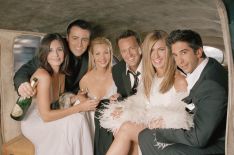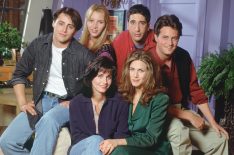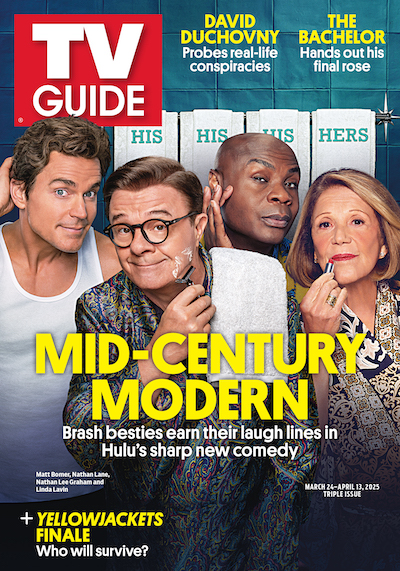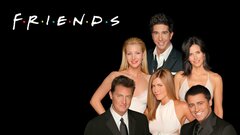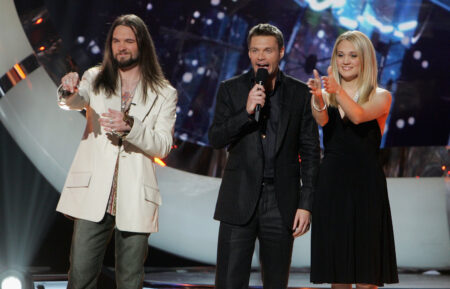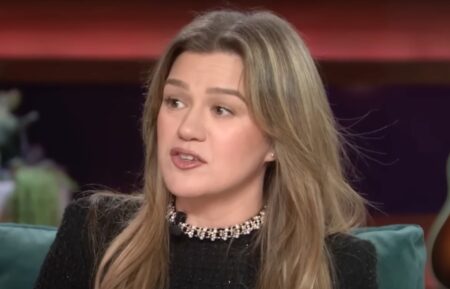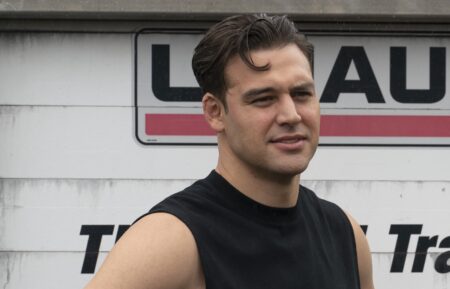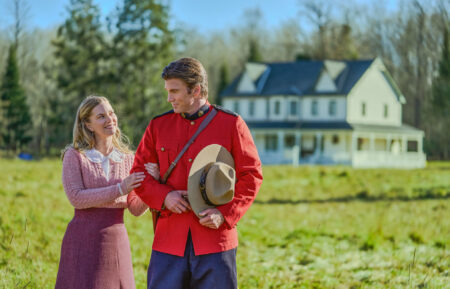How Well Has ‘Friends’ Aged? The Sitcom’s Cast & Critics Disagree
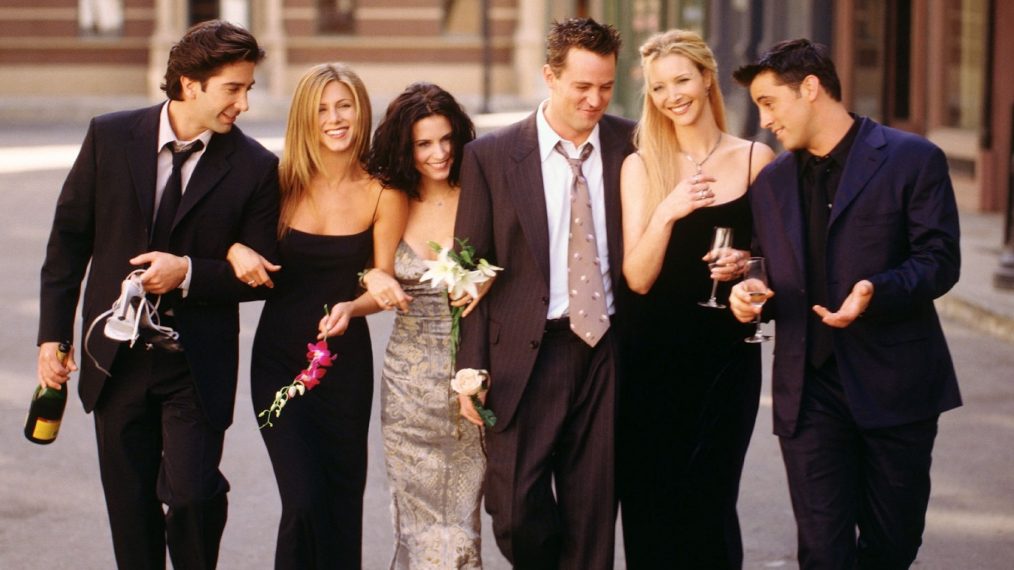
Perhaps not everyone was sorry to see Friends leave Netflix in December. The blockbuster 1990s NBC sitcom—which starred Jennifer Aniston, Lisa Kudrow, Courteney Cox, Matt LeBlanc, David Schwimmer, and Matthew Perry—has been a lightning rod of criticism in the past few years as new, woke generations call out the jokes they find offensive.
A January 2018 Independent article, headlined “Millennials watching ‘Friends’ on Netflix shocked by storylines” and followed 11 days later with a listicle titled “Friends: 10 times the classic sitcom was problematic,” seems to have reignited the debate. The Independent’s Ilana Kaplan observed in the former piece that Twitter users had declared the show “transphobic, homophobic and sexist”—after watching Chandler’s panic over being perceived as gay, for example, and his mockery of his drag queen/trans-female father—and Kaplan also called out the show’s fat jokes and its lack of diversity.
Other critics and journalists piled on over the next four months, publishing pieces headlined “11 Offensive AF ‘Friends’ Jokes You May Have Missed The First Time Around,” “21 Times ‘Friends’ Was Actually Really Problematic,” and “Why Everyone’s Favorite 90’s Show Is Hugely Transphobic.”
“Friends is not a toxic show because of its overt homophobia or transmisogyny,” them’s Samantha Riedel observed in the last of the above critiques. “It’s not a toxic show because of the more subtle ways it reflects the bigotry of its time. It’s a toxic show because both of these things are true about a sitcom that won national acclaim as a wholesome, apolitical show while actively adding to the gleeful mockery queer people in America have to face.”
Amid the Friends firestorm of early 2018, LeBlanc spoke out. “I’ve heard those rumors, too, about people taking pot shots at Friends, but I don’t want to get into that,” he told BBC News that February. But the actor did “get into that,” telling the outlet he disagrees with “all” of the criticism. “Friends was about themes that stand the test of time—trust, love, relationships, betrayal, family, and things like that,” he added.
More recently, Schwimmer defended the show in an interview with The Guardian published this January. “I don’t care,” he said (dismissively, his interviewer noted). “The truth is also that show was groundbreaking in its time for the way in which it handled so casually sex, protected sex, gay marriage, and relationships. The pilot of the show was, my character’s wife left him for a woman, and there was a gay wedding, of my ex and her wife, that I attended.
He went on: “I feel that a lot of the problem today in so many areas is that so little is taken in context. You have to look at it from the point of view of what the show was trying to do at the time. I’m the first person to say that maybe something was inappropriate or insensitive, but I feel like my barometer was pretty good at that time. I was already really attuned to social issues and issues of equality.”
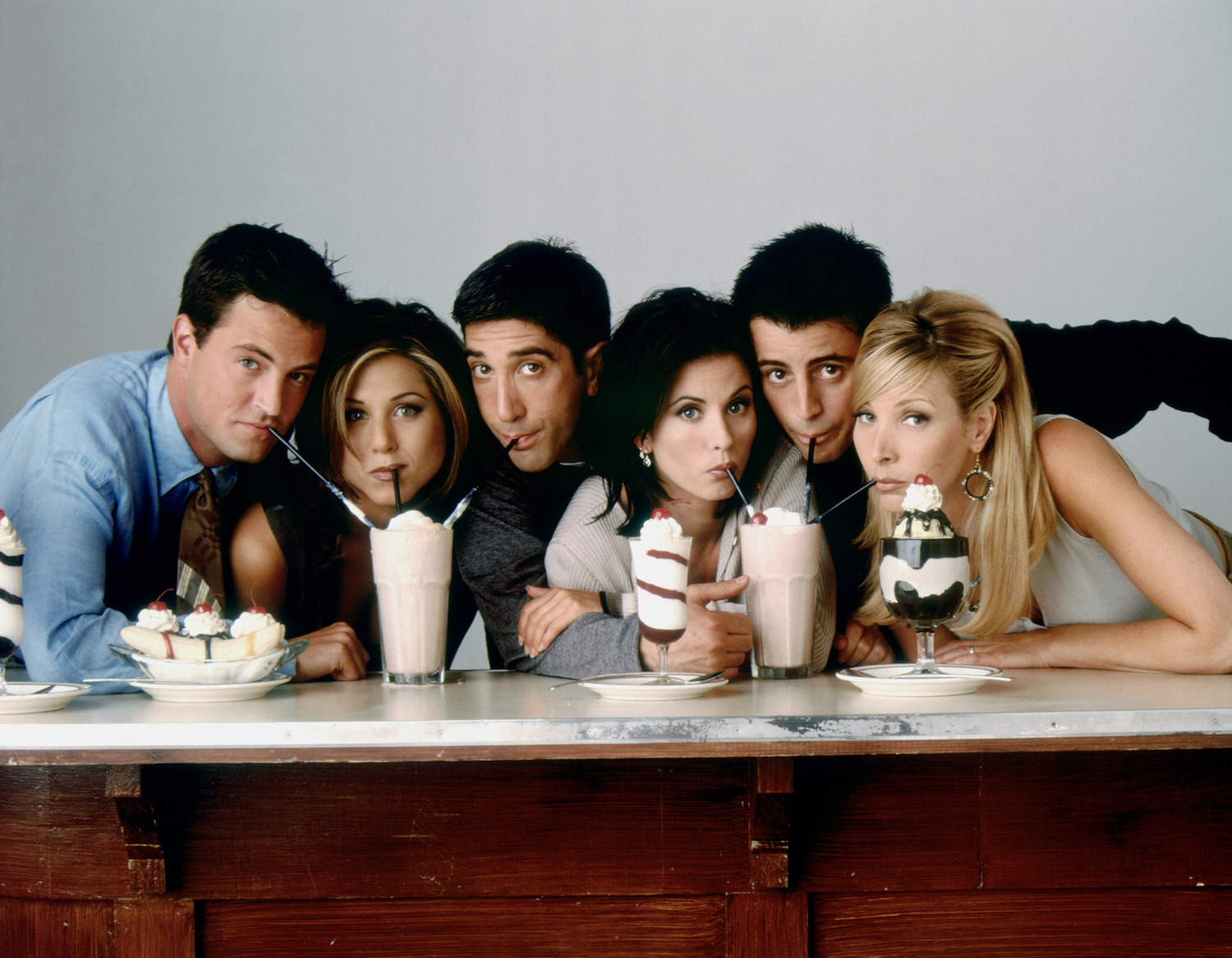
Warner Bros. Television
For her part, Friends co-creator Marta Kauffman told USA Today in April 2019 that she notices something she wishes she “could have changed” in every episode she watches, but her quibbles seem mainly related to the caliber of the comedy. She did, however, express one regret: “I think we didn’t have the knowledge about transgender people back then, so I’m not sure if we used the appropriate terms. I don’t know if I would have known those terms back then. I think that’s the biggest one.” (On the same topic, Reidel wrote: “Charles Bing’s gender identity is mangled throughout the series by a team of writers with only the shallowest understanding of how trans and drag culture overlap.”)
All of that said, the show has staunch defenders. A week after the first Independent article hit the web, The Sun’s George Harrison decried the “professionally-offended snowflake mob” and pointedly put their accusations in quotation marks: “Unfortunately for them, no one told them it was gonna be this way, and they’re outraged at the tongue-in-cheek jokes about Monica’s weight (‘fat shaming’) and Chandler being ashamed of his drag-queen dad (‘homophobia.’)”
The Guardian’s Sarah Gosling posted a cooler-headed defense of the sitcom a day later. “Friends is a show that was born pre-Twitter, pre-online activism, and before #HeForShe movements,” she wrote. “So the fact that trans, gay, polygamous and liberal people are being shown with such depth and agency is remarkable.”
In a September 2019 opinion piece, Entertainment Weekly’s Kristen Baldwin asked viewers to “please stop woke-testing Friends,” arguing that the “gay panic” jokes are jokes about the straight characters’ fragility, and that for all the lesbian jokes made at Carol and Susan’s expense, their relationship was “portrayed as normal, healthy, and even sexual.”
Baldwin did admit that the show’s fat jokes are offensive and that the casting of Kathleen Turner as a trans woman wouldn’t and shouldn’t fly today, but she also points out that this is a “level of discourse” that didn’t exist in 1990s pop culture. “It’s wonderful that today, we can talk in a frank and honest way about why those things are hurtful,” she wrote. “But insisting that Friends was intentionally derogatory or somehow more problematic than any other pop culture at the time is a silly exercise in false outrage. It’s okay to celebrate the show while also recognizing it as an example of how far we’ve come as a culture.”
It seems the show’s most vocal supporters and critics will never agree. And perhaps they never should. Kelsey Miller, the woman who literally wrote the book on Friends, reflected on the show’s successes and failures in a Vox piece this September, arguing that all the controversy is productive.
“I think Friends’ ability to polarize is the show’s true legacy,” she mused. “It has become a way for us to look at (and argue about) enormous societal issues—racism, misogyny, homophobia—through the lens of a sitcom.”
From TV Guide Magazine
How Hulu's 'Mid-Century Modern' Is a 'Golden Girls' for Our Times
Settle in for some older and bolder laughs with the BFFs of a certain age in the new comedy starring Nathan Lane, Matt Bomer, and Nathan Lee Graham. Read the story now on TV Insider.

